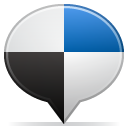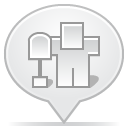ATLANTA (AP) — Half of Americans drink a soda or sugary beverage each day — and some are downing a lot.
One in 20 people drinks the equivalent of more than four cans of soda each day, even though health officials say sweetened beverages should be limited to less than half a can.
The Centers for Disease Control and Prevention released the figures Wednesday in a report said to be the government's first to offer national statistics for both adults and kids.
Sweetened drinks have been linked to the U.S. explosion in obesity and related medical problems, and health officials have been urging people to cut back for years. Some officials have proposed an extra soda tax and many schools have stopped selling soda or artificial juices.
But advocates say those efforts are not enough, and on Wednesday a coalition of 100 organizations announced a new push. The effort includes the American Heart Association and the some city health departments who plan to prod companies to stop the sale of sugary drinks on their property or providing them at business meetings — as Boston's Carney Hospital did in April. There will also be new media campaigns, like one starting soon in Los Angeles that will ask "If you wouldn't eat 22 packs of sugar, why are you drinking it?'
The new CDC report may be ammunition. It found:
—About half the population drinks a sugared beverage each day.
—Males consume more than females, with teenage boys leading the pack. On average, males ages 12 through 19 drink the equivalent of nearly two cans of soda each day.
—Poor people drink more than the more affluent. Low-income adults got about 9 percent of their daily calories from sugary beverages; for high-income adults it was just over 4 percent.
—Blacks get more of their calories from sweetened beverages than other racial and ethnic groups.
The study is based on in-person interviews of more than 17,000 people in the years 2005 through 2008. They were asked to recount everything they ate and drank in the previous day. However, diet sodas, sweetened teas, flavored milks and 100 percent fruit juice did not count.
Healthy-eating recommendations call for people to limit sugary beverages to about 64 calories per day. That's a little less than half of a 12-ounce can of regular Coca-Cola, which is 140 calories.
In other terms: An average can of sugared soda or juice has 10 to 12 teaspoons of sugar.
There have been efforts to reduce children's access to sodas and sports drinks in schools, with beverage companies agreeing to remove full-calorie soft drinks. But the CDC study found more than half of the drinks are consumed at home. Less than 1 percent are bought at schools or day-care centers.
That's why some members of the coalition argue that parents shouldn't drink sweetened beverages, so they don't serve as a poor example at home. They hope drinking soda will become as unfashionable as smoking.
A spokesman for Carney Hospital — the 149-bed Boston facility that stopped allowing full-calorie soft drink sales — said the approach makes sense. When the policy was implemented in April, sales of beverages dropped, but have gone back up, as more people apparently are adjusting to water and other non-sweetened drinks.
The hospital's Dorchester neighborhood has high rates of diabetes and other weight-related illnesses, said spokesman Joe Burnieika. "We can't afford to feed people's bad habits if we can give them a healthy alternative," he said.
In a statement, the American Beverage Association on Wednesday suggested that the coalition's effort was misguided. Citing sales data and some other research, the industry group said sales of full-calorie soft drinks have been declining, which they credited to soda makers offering more no-calorie and low-calorie options and improved calorie labeling on the front.
These initiatives "will contribute far more to solving complex health issues like obesity than (the coalition's) sound bite solution that offers plenty of hype but no substance," the statement said.
___
Online:
CDC report: http://www.cdc.gov/nchs
One in 20 people drinks the equivalent of more than four cans of soda each day, even though health officials say sweetened beverages should be limited to less than half a can.
The Centers for Disease Control and Prevention released the figures Wednesday in a report said to be the government's first to offer national statistics for both adults and kids.
Sweetened drinks have been linked to the U.S. explosion in obesity and related medical problems, and health officials have been urging people to cut back for years. Some officials have proposed an extra soda tax and many schools have stopped selling soda or artificial juices.
But advocates say those efforts are not enough, and on Wednesday a coalition of 100 organizations announced a new push. The effort includes the American Heart Association and the some city health departments who plan to prod companies to stop the sale of sugary drinks on their property or providing them at business meetings — as Boston's Carney Hospital did in April. There will also be new media campaigns, like one starting soon in Los Angeles that will ask "If you wouldn't eat 22 packs of sugar, why are you drinking it?'
The new CDC report may be ammunition. It found:
—About half the population drinks a sugared beverage each day.
—Males consume more than females, with teenage boys leading the pack. On average, males ages 12 through 19 drink the equivalent of nearly two cans of soda each day.
—Poor people drink more than the more affluent. Low-income adults got about 9 percent of their daily calories from sugary beverages; for high-income adults it was just over 4 percent.
—Blacks get more of their calories from sweetened beverages than other racial and ethnic groups.
The study is based on in-person interviews of more than 17,000 people in the years 2005 through 2008. They were asked to recount everything they ate and drank in the previous day. However, diet sodas, sweetened teas, flavored milks and 100 percent fruit juice did not count.
Healthy-eating recommendations call for people to limit sugary beverages to about 64 calories per day. That's a little less than half of a 12-ounce can of regular Coca-Cola, which is 140 calories.
In other terms: An average can of sugared soda or juice has 10 to 12 teaspoons of sugar.
There have been efforts to reduce children's access to sodas and sports drinks in schools, with beverage companies agreeing to remove full-calorie soft drinks. But the CDC study found more than half of the drinks are consumed at home. Less than 1 percent are bought at schools or day-care centers.
That's why some members of the coalition argue that parents shouldn't drink sweetened beverages, so they don't serve as a poor example at home. They hope drinking soda will become as unfashionable as smoking.
A spokesman for Carney Hospital — the 149-bed Boston facility that stopped allowing full-calorie soft drink sales — said the approach makes sense. When the policy was implemented in April, sales of beverages dropped, but have gone back up, as more people apparently are adjusting to water and other non-sweetened drinks.
The hospital's Dorchester neighborhood has high rates of diabetes and other weight-related illnesses, said spokesman Joe Burnieika. "We can't afford to feed people's bad habits if we can give them a healthy alternative," he said.
In a statement, the American Beverage Association on Wednesday suggested that the coalition's effort was misguided. Citing sales data and some other research, the industry group said sales of full-calorie soft drinks have been declining, which they credited to soda makers offering more no-calorie and low-calorie options and improved calorie labeling on the front.
These initiatives "will contribute far more to solving complex health issues like obesity than (the coalition's) sound bite solution that offers plenty of hype but no substance," the statement said.
___
Online:
CDC report: http://www.cdc.gov/nchs






0 comments: